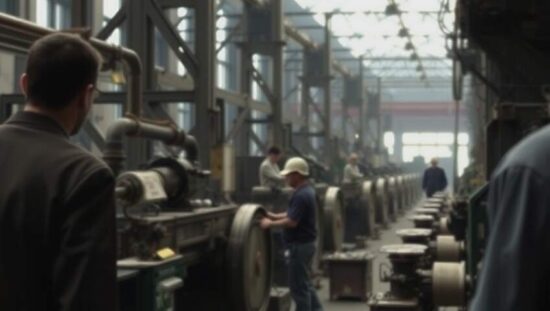The German government has reaffirmed its commitment to safeguarding the nation’s steel industry, a move intended to quell growing anxieties over job losses and regional economic decline, but one that also raises questions about the long-term viability of the sector amidst global competition and the urgent need for decarbonization. Labour Minister Bärbel Bas, speaking ahead of a crucial government summit focused on the steel industry, underscored its importance as “the backbone of German industry” highlighting the 115,000 direct jobs and the broader regional communities dependent on the sector.
Bas’s pledge to “stand firmly by the side of companies and their employees” signals an attempt to reassure stakeholders amidst growing pressure from international trade practices and soaring energy costs. The government is explicitly targeting fair competition, advocating for measures intended to shield domestic steel producers from subsidized imports – a persistent challenge impacting profitability and threatening investment. Simultaneously, securing affordable energy remains a critical priority for the industry, currently a significant cost burden hindering competitiveness.
However, this commitment to preserving the steel industry faces complex challenges. While the government emphasizes collaborative efforts – involving robust worker participation and forward-thinking corporate investment – critics argue that the focus on mere preservation risks delaying the necessary and potentially painful, structural reforms required to transition to a climate-neutral future. The emphasis on maintaining the current industrial footprint, while politically expedient, may clash with the long-term need for fundamentally altering production processes and potentially reducing capacity.
Furthermore, the “joint effort” rhetoric, while projecting unity, obscures the inherent tensions between protecting jobs in the short term and ensuring the industry’s adaptability in a rapidly evolving global landscape. The summit’s outcome will be closely scrutinized to determine whether it prioritizes immediate political stability or tackles the difficult conversations needed to secure the long-term resilience of Germany’s steel industry. The need to reconcile competitiveness with ambitious climate goals, particularly in a geopolitically volatile environment, presents a delicate and potentially defining challenge for the government.





